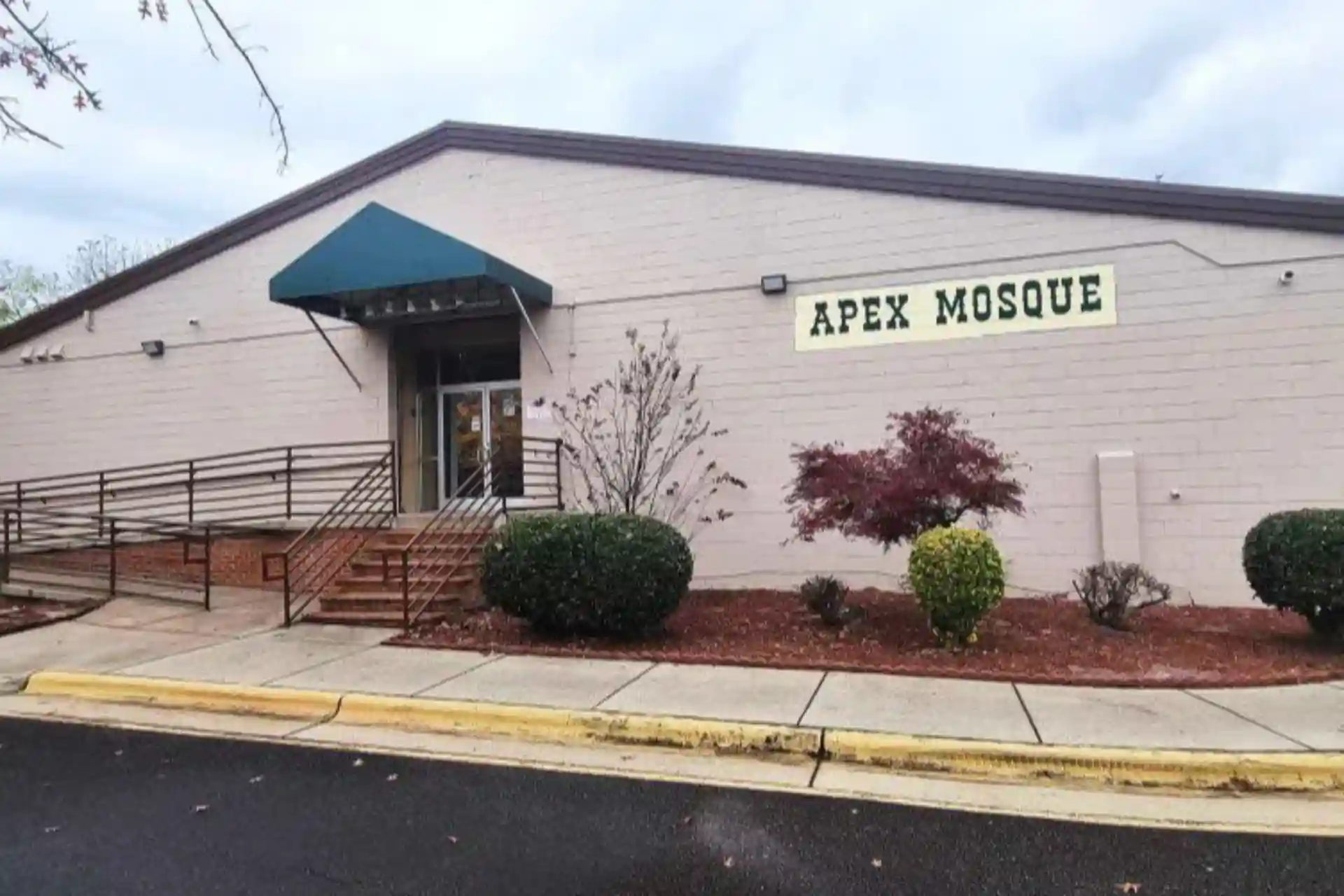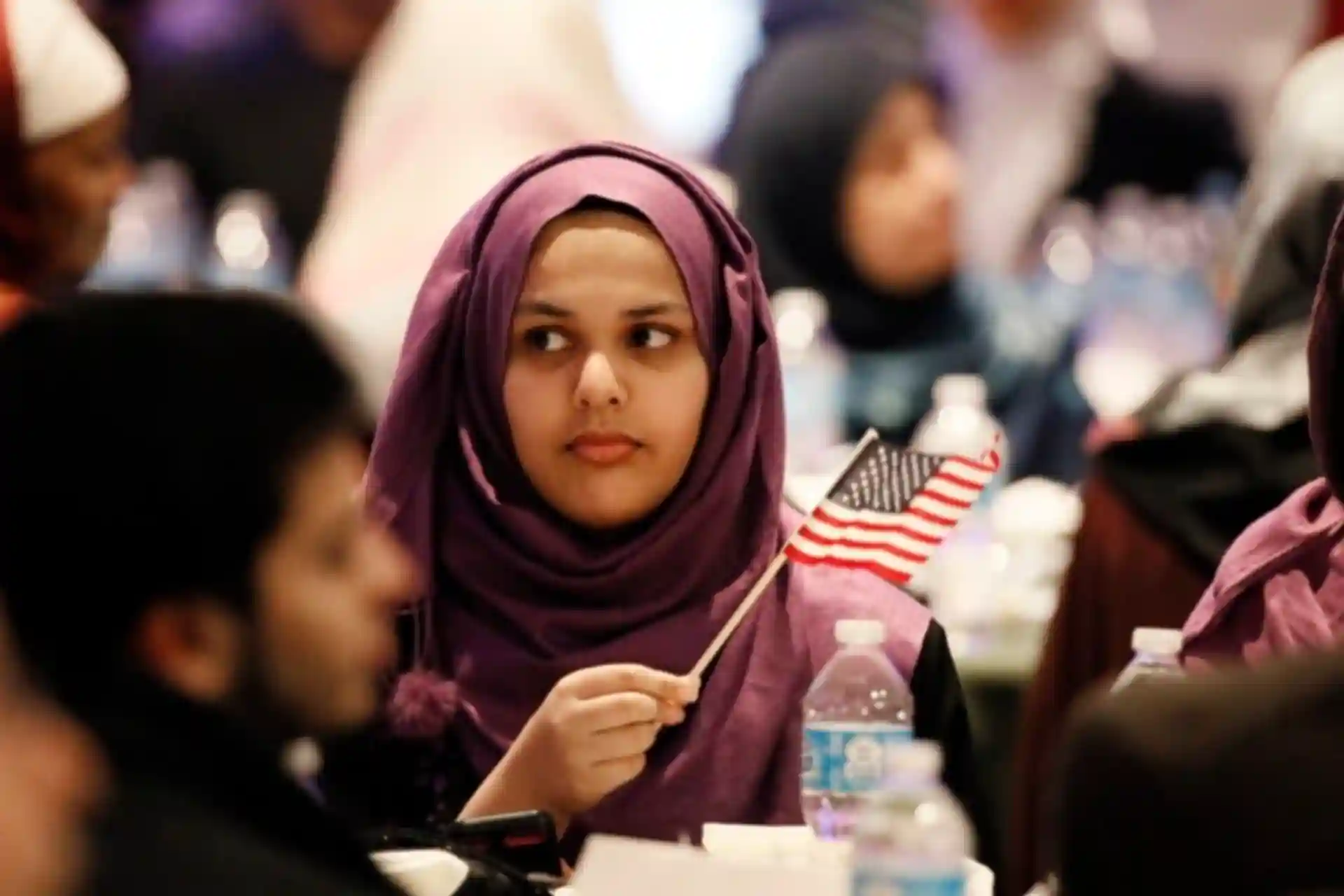05.12.2024 10:13
1501
How did a warehouse in the US become a successful mosque?
A mosque operates in a warehouse-like building in Apex, North Carolina, USA. The mosque, which was opened in 2009 by the efforts of young Muslims living in this area, is today not only a place of prayer, but also a center that provides many Islamic services. One of the founders of the mosque, Khalid Shahu, gave an interview to "Al-Jazeera" TV channel, talking about the process of creating the mosque, the difficulties they faced and the services the mosque currently provides.
It is a large warehouse-like facility located in the heart of Apex, North Carolina. The only indication of its Islamic purpose is a sign in English that reads "Apex Mosque" hanging in front of the main entrance.
About 14 years ago, the building was used as a second-hand market. However, the financial crisis of 2008 forced the owner to close the business and put the building up for sale. At the same time, the Muslim community of the city was looking for a place for a mosque in order to meet the needs of the growing Muslim families. Because before that, there were too many houses for Muslims, who used to take turns to read public prayers in each other's houses.
Khalid Shahu, one of the founders of the mosque and a former leader of the Muslim community in North Carolina, told Al-Jazeera in an interview about the process of creating the mosque, the challenges they faced and the services the mosque currently provides.
Shahu said the Apex Masjid came about as a result of the efforts of a group of young people living in the area who were united around the idea of goodness and service to the community. At first, at the very beginning, they took turns to pray at home and hold educational events. However, as the number of participants increased, the need for more spacious premises arose.
In 2006, an active search for a suitable place began. In 2009, after a long search, they found the former market building. At first, the multi-million dollar price tag seemed to mean the building wasn't the right fit, but they agreed to pay in installments with the owner. To finance and adapt the building, the owner of the building was offered a Sharia-compliant method that excludes interest-bearing bank loans. After consulting with a lawyer, the owner agreed to sell the building in installments. It made the process much easier.
In addition, the property is already registered as a suitable place for religious gatherings, eliminating the need to obtain approval from neighbors. With the help of the owner of the building, all necessary repairs were quickly completed and legal permits were obtained. The mosque was opened in May 2009.
Challenges and obstacles
The main challenge was financial obligations: the purchase of the building cost $3.6 million, and the monthly payment was $20,000. In addition, funds were required for maintaining the mosque and organizing events.
At first, the team was small, and some members doubted the feasibility of such a large-scale project. Nevertheless, thanks to the solidarity and sincere dedication of the community members, the project was successfully implemented. The "Nafis" fund also provided financial support, which made it possible to fully repay the debt in less than 10 years.
During its 15 years of operation, the Apex Mosque has become not only a place of prayer, but also a center of social and educational activities. In addition to regular prayers and Friday sermons: "Al-Manara" school for preschool children; Sunday School; Youth Center; There is also a Quran study program for women.
The mosque was instrumental in establishing the North Carolina Council of Imams to coordinate the efforts of Muslim organizations in the region.
Relations with the local community
Shahu stressed the importance of reaching out to the non-Muslim population. Events such as "Open Doors" are organized in the mosque, information materials are distributed, meetings are held with local governors, and cooperation with the fire safety department is underway.
At the same time, Shahu emphasized the need to strengthen and systematize these efforts, especially in the context of growing Islamophobia. Identity Preservation and Integration One of the major challenges facing the Muslim community in the United States is the strong need to maintain identity while simultaneously integrating into society.


